Big Data, is the talk of the town and has emerged as the boon for carrier companies but before we discuss the impact of Big Data on carriers; let’s know what exactly Big Data is. In simple words Big Data is a set of data that is large and complex, set of data that is not easy to manage, process, store, share or transfer.
Big Data technology is relatively new but this technology has made it possible to manage and process the volume of data that was considered impossible a decade before. “Facebook” big data is being used in domains like social media, advertising and Facebook is utilizing the big data for both.
Telecom NOC:
Carrier / Telecom operators register subscribers on network that serves voice, SMS, data; and subscriber initiates a service from his terminal (handset). The terminal connects the subscriber to core switch through access network over radio signal. This core switch establishes a connection with other subscriber, which may be on another network or on a gateway. During this process, the subscriber’s carrier / telecom operator monitors the performance of the network and subscriber behaviors using an operation support system.
Subscribers are also free to activate / de-activate services, the activation / de-activation of services can be initiated via voice call, SMS, USSD short codes, email.
Data can be streamed into a big data analytics server to dig out useful information like subscriber profile, services rendered, new service activation, de-activation of old services for telecom network monitoring, network performance & trends.
Earlier offline BI tools were used by carriers to dig out useful information on subscriber profiling or network performance; but the analysis carried out of data in offline mode was affecting the subscriber by the next billing cycle.
With the advent of technologies like Apache (Kafka, Strom, Spark, Hadoop) and AWS Kinesis; it is now possible for carriers to dig out information in real time and improve customer experience by being proactive in offering them best billing plan or package that exactly suits subscribers. The proactive approach also helps carrier in customer retention, boost customer loyalty and decrease loss of business. The real-time scenario of Big Data utilization by carriers is for subscriber satisfaction.
• Battery Saver:
We all are known with the fact that using 3G data service on mobile handset consume more battery; when high bandwidth is used more battery power is consumed. Typically, these settings of using high bandwidth or low bandwidth are manual and selected by user only. Through big data analysis telecom operator can monitor subscriber usage in real-time and can push carrier settings to mobile handset for switching it back to low bandwidth when mobile is not used for data services and push high bandwidth setting when subscriber is using data services that require high bandwidth on mobile handset.
• Customer Service:
Major challenge faced by operators is call drop, poor network coverage, quality of voice call, data connectivity. All these problems are noticed by operator when subscriber starts complaining about the same. With advent of big data technology, operators are in position to monitor quality of service in real-time, based on signaling, and exchange of data. They can investigate root cause of each problem even before subscriber complain about the problems, and issues like coverage, congestion can be resolved. Even if subscriber is facing problems because of wrong plan selection or mobile handset; the same can be identified and subscribers can be offered alternate plan or replacement of handset to improve overall experience.
• Roaming:
Most of the time it has been observed that while on international roaming; subscriber limit oneself from using mobile for various services that are being used extensively when at home location. By using real-time analytic carrier can identify that subscriber is not in home location and also from subscriber historical data and events; they can also predict that subscriber shall be on international roaming along tentative duration of stay.
By knowing these details; carrier can offer best calling and data plans to subscriber that can create win-win situation for both subscriber and telecom operator. The said approach help operator to minimize potential loss and will enable subscriber to continue using all services that are been enjoyed at home network.
• Network Optimization:
Network optimization can be achieved by SON – Self-Organizing Networks. Self-Organizing Networks (SON) is a collection of functions to automatize – configuration, optimization, analyze and healing of cellular networks. SON has gained popularity with advent of LTE (long time evolution). The most important objective is load balancing. By analysis the data congestion in network can also overcome. Due to congestion on radio access station (RAS) it starts underperforming. SON help carrier to diagnose congestion on RAS and through automatized configuration and optimization of RAS, load is diverted to neighboring RAS.
• Network outages forecast:
The most critical parameter for any carrier / telecom operator is to prevent outages of network components.
Carriers can avoid outage or at least minimize impact just by running algorithms on current data reported by network examination; comparing them with the available historical data. Analysis past outages with current network conditions that could probably led to outages.
Conclusion
Big data analysis is more critical in Telecom industry as compared to any other; as here subscribers are going to use various services together. Also, investment (Capex & Opex both) on infrastructure is huge on various network components. Most importantly services provided by carrier / telecom operator needs to be uninterrupted and seamless. Real-time analytics and recommendation in support system enables carrier / telecom operator to enhance not only services to subscriber but will also enhance network performance.


















